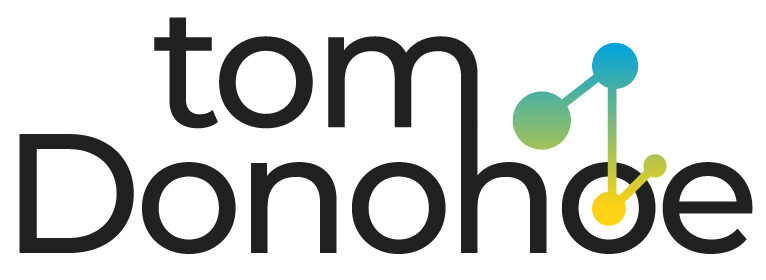The digital revolution in healthcare and pharmaceuticals is transforming the industry.

The Agile Elephant defines digital transformation as “a change of leadership, new thinking, encouragement of innovation, and new business model, incorporating digitization and increased use of technology in order to improve the experience for your organization’s customers, employees, suppliers, partners and stakeholders.”
The shift in processes and behavior is affecting every industry, including pharmaceuticals and healthcare. Digital empowers patients to take a more active part in their care and makes processes more efficient for healthcare providers. Here are six ways digital is changing the pharmaceutical and healthcare landscape.
Now, the effectiveness of treatment is transparent.
The major pharmaceutical companies are no longer the only ones who can provide information on how their products perform over the long term. The digital transformation trends of recent years have provided both companies and patients in the pharmaceutical industry with unprecedented access to information regarding the impact of healthcare strategies or pharmaceutical products and how they may impact everyday life and their well-being.
Some mobile apps can track the impact of a therapeutic measure prescribed by a doctor. These sources give analytics experts actionable insights into the safety and effectiveness of a therapy or drug.
McKinsey, in an article entitled “The Road to Digital Success for Pharma,” states that the first step to adapting to this influx of information is developing processes that will allow you to utilize it effectively. Both old and new pharmaceutical firms can ensure they are the “main authority on the performance” of their products by doing this.
Data Visualization for Accessibility
Data visualization is not just about aesthetics; it’s based on real results and industry findings. The way that people process and access information is changing as more content becomes available online every day. The digital transformation of new pharmaceutical companies is a crucial step in their success.
Data-based intelligence must be shared in a way that is tangible and accessible to a broader audience, not just the scientifically-minded among us. Data visualization, for example, could improve how data is shared with patients or how different medications and treatments affect other parts of the physiological system.
Patients are empowered to play an active role in their care.
Digital trends show that patients are becoming more involved in their medical treatment plans. Healthcare professionals will still represent this relationship. McKinsey quotes a McKinsey survey that found over 85% of patients felt confident about their ability to take responsibility for their health and understood how to access digital and online tools to help them.
People are more confident in taking care of their health and well-being themselves because of the vast amount of digital information available on healthcare and pharmaceuticals. This information allows patients to understand their health better and assess the costs of pharmaceutical products or healthcare.
These digital transformation trends can be very beneficial for new pharmaceutical companies. They give the industry the opportunity to engage and connect with potential patients while they research the benefits of specific products.
24/7 Virtual Care
Econsultancy’s 2017 Digital Trends in Healthcare and Pharma Report surveyed almost 500 respondents from the healthcare and pharmaceutical industries to determine which digital marketing areas will be “very significant” in the coming years. According to the findings of the report, 74% of respondents from the healthcare industry and the pharma industry stated that “optimizing customer journeys across multiple touchpoints will be one of the most important digital strategies in the future.”
What does this mean to new pharmaceutical companies? And what about healthcare professionals and patients as well? It means there will be more engagement between patients and doctors at multiple touchpoints in the patient care process. Virtual care that is up-to-date and available 24/7 will be the standard for all industry players, from pharmaceutical sales reps down to patient teams.
McKinsey reports that there are virtual-care apps already available, such as NeoCare Solutions by Aetna. This app provides on-demand support from neonatal nurses after parents have returned home with their babies who were previously in intensive care.
The personalization of care will be a major factor in the transition from limited office hours to 24/7 accessibility. Sensors and apps allow patients to receive unique care tailored to their needs. Wireless sensors are already available to some patients.
This change in expectations and experiences will require a change that is customer-centric for pharma and healthcare firms to be successful. The Digital Trends and Healthcare Report warns that bureaucratic processes and slow growth for large-scale organizations are the biggest challenges to surviving this digital transformation trend.
It’s important to consider your company’s digital strategy and the changes that need to be made. McKinsey says that instead of just providing drug-based treatment, the new pharmaceutical companies are going to provide comprehensive treatment and value in a “digital eco-system.”
The healthcare and pharmaceutical industries will use biophysical measurements and data as part of a network that includes sensors and apps.
Digital streamlines processes for efficiency.
Digital innovations allow large-scale companies, such as those mentioned above, to thrive despite major industry changes. AI, which can make complex calculations and decisions based on data analysis and in-depth information, is transforming the way we think about strategic processes.
Transparency of R&D portfolios will be required to meet the expectations of customers and patients and to maintain their industry leadership.
Enhanced Drug Development
Analytics, AI, and other advanced technology will also transform the pharmaceutical industry. Drug manufacturers will be able to understand better how a drug works on a patient with real-time data from clinical trials.
The Future of Healthcare and Pharma Solutions
Many top pharmaceutical companies are making significant progress in their digital transformation journey despite the fact that the pharma sector can be slow to adopt change due to regulatory constraints. A report from the Deloitte Centre for Health Solutions shows that the number of pharmaceutical applications developed by pharma firms has tripled between 2013 and 2016. Three hundred-five apps were created in 2013, while 988 apps were created in 2016.
The importance of the “connected patients” is also highlighted in the report. In the US, 77% of people use smartphones to access online information. This means that they can now track their health using smart applications. A survey of 190 patient group members found that more than 50% of respondents use health apps “regularly” and “occasionally,” and almost 70% use one or more health-related apps to manage their condition.
In order to succeed in the new digital landscape, healthcare and pharmaceutical companies need to provide more personalized care for patients that engages them through real-time data visualizations and interactive care. No matter how they adapt, digital innovations will have an impact on how they conduct business.
To survive and thrive, healthcare and pharmaceutical companies need to start developing ideas and implementing digital strategies immediately. This will allow them to transform and enhance their strengths and capabilities. It’s important that healthcare and pharma companies put their ultimate goal at the forefront of their mission. That is the health and safety of their patients.





